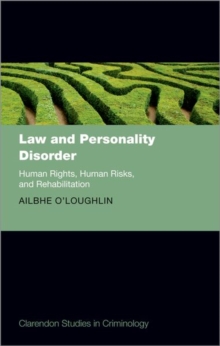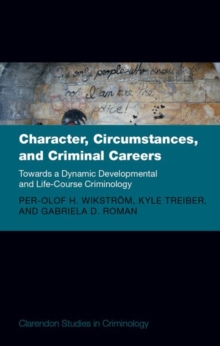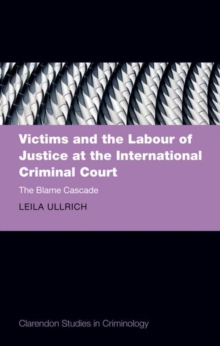
Intimate Crimes : Kidnapping, Gangs, and Trust in Mexico City PDF
by Rolando Ochoa
Part of the Clarendon Studies in Criminology series
Description
Mexico has one of the highest kidnapping rates in the world.
Intimate Crimes outlines the history of kidnapping in Mexico City by constructing a narrative of this crime based on extensive qualitative research on gangs, policing and other crime-related policies.
The book also analyses the effect of kidnapping - and crime more broadly - on how communities experience the city, as well as the strategies put in place by potential kidnapping victims to deal withthe threat of being victimised by someone close to them, a common occurrence in Mexico City, including analysing the processes through which household employees are screened and selected in Mexican households. The book presents the results of over a year of fieldwork in Mexico, and creates a qualitative database of news reports for the material used in its writing.
It includes material from over 70 interviews with kidnapping victims, their families, potential victims and their employees, police, prosecutors, government agents, journalists and other informants. Intimate Crimes contributes to existing criminological literature on Mexico and Latin America by making an important contribution to a subject of the outmost regional importance.
The book also contributes to broader criminological topics on the rule of law, criminal gangs, policing and the impact of economic development on crime.
It also builds on the existing literature on empirical work on trust and signalling, particularly as it relates to contexts of weak rule of law and low stateprotection.
Information
-
Download - Immediately Available
- Format:PDF
- Pages:240 pages
- Publisher:OUP Oxford
- Publication Date:03/10/2019
- Category:
- ISBN:9780192519412
Other Formats
- EPUB from £68.88
Information
-
Download - Immediately Available
- Format:PDF
- Pages:240 pages
- Publisher:OUP Oxford
- Publication Date:03/10/2019
- Category:
- ISBN:9780192519412










